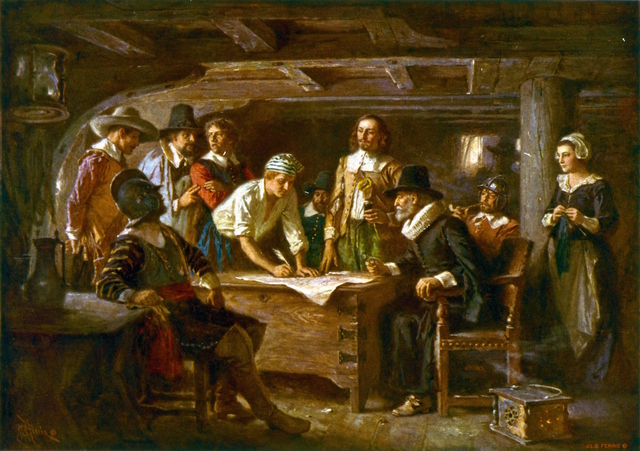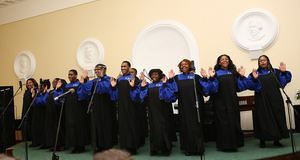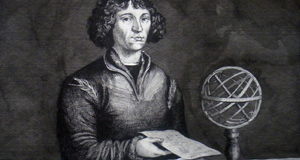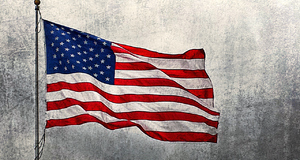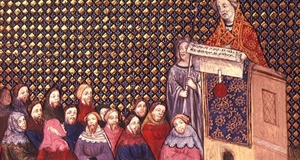William Bradford, The Puritan Ethic, & The Mayflower Compact
By
2010, Vol. 2 No. 11 | pg. 1/2 | »
KEYWORDS:
Dissatisfied with the results of the reformation of the Church of England, a group of extreme separatists known as the Puritans desired nothing less than the total elimination of any trace of Roman Catholicism in their church. This devotion to their religious practices and beliefs, along with escalated repression by the English government and church, ultimately led to the Puritans emigration to Holland and subsequently to the new world, where they established a colony in New England (Bowden). Born of this repression and emigration, a leader and American literary figure emerged in the personage of William Bradford. Bradford played a role in the drafting of the Mayflower Compact, contributing to the first truly independent form of civil government in America. He went on to guide the settlement as governor or assistant governor for upwards of 30 years. The Puritan Ethic of that time, as well as the concepts forged by the Mayflower Compact, and its eventual development into a somewhat democratic form of representative government, laid the foundation for later American government and made an influential impact that can be seen even today. Puritans were so named because of their desire to “purify” the Church of England above and beyond the perceived inadequacy of the initial reformation of the sixteenth century (Bowden). These Puritans were dedicated to the teachings of John Calvin, a Swiss Protestant reformer. They believed themselves to be God’s “divinely chosen” people. Part of Calvin’s theology was the idea of “godly industry,” or working diligently under the eye of God to create a civilized landscape in which to pursue their beliefs (Finch 1314). A return to the “...ancient purity and simplicity of the church as established by Christ,” was what the Puritans sought. Their feeling was that even after the initial reformation of the church, there still existed unacceptable traces of Roman Catholicism. They wished to further “purify” the practices and rituals of the Church of England, but eventually severed ties with the Church, forming a church of their own. This act was viewed as treasonous in the eyes of the English government (Belasco, Johnson 96-97). The four main convictions of Puritanism were that personal salvation was completely dependent upon God, that the Bible was the final authority and guide to good Christian life, that the church was to be organized from the scripture and that society was a single, unified entity (Bowden). The focus of the Puritan doctrine was not only the belief in the sovereignty of God and the dependence of man entirely on God for salvation, but the importance of the individual’s personal religious experience through purification of self and society. This is the Puritan Ethic: Strict self-discipline and devotion to God and church, accompanied by contempt for sinful pleasures and luxuries. It is an ethic that lends itself well to a group of settlers about to face some of the harshest living conditions of their lives (Bowden). Under increasing scrutiny and repression by the government and Church of England, the Puritans sought further physical separation from their critics. (Bowden). In the spring of 1609, a contingent of Puritans sought relief from the hostility and persecution of their English government by seeking refuge in Holland. After a number of the emigrants were arrested in Amsterdam, the group moved on to Leiden, where they assumed various occupations and formed a congregation. This congregation was described as, “as near the primative patterne,” of the earliest apostolic churches, by none other than William Bradford. Bradford, at that time, had moved with the separatists to Leiden, where he became a citizen and worked as a weaver. In 1613 he married the daughter of a member of the English Church of Amsterdam, Dorothy May, and they later had a son, John (McGiffert 362). Bradford had already possessed strong religious convictions as early as age twelve, and in his teens he began to attend the ministry of a local Puritan separatist, Rev. Mr. Clifton, despite criticism from his family and neighbors. It was this group, which under threat and persecution, made the eventual move to Holland (Leslie 1069-1070). Though Bradford did not possess any type of formal education, he was familiar with Latin and Greek, and was sufficiently adept at Hebrew to be able to understand and “see with his own eyes the ancient oracles of God in their beauty.” In addition to language, Bradford was also knowledgeable in the areas of history and philosophy (Leslie 1071). On his father’s death, Bradford received an inheritance, which he later converted into money in 1611. With this funding he was able to establish himself as a marginally successful businessman. In 1620, financing was secured through a group of English investors, and plans were made to migrate to the new world (McGiffert 362). Three groups participated in the agreement for the financing of the excursion to the new world. The London adventurers provided the majority of the funding for the trip, while the planters and the adventurer planters possessed either one or two shares in the investment by either purchase or labor. Though the London adventurers provided much of the funding, and would hold the other two parties in servitude to repay the debt, they held no civil governing authority over the planters (Magill 75). Having found some freedom to worship in their own way in Holland, the separatists still did not have an easy life there. They longed for a place where they could not only worship as they chose, but also flourish and prosper as a unified society. Despite the advantages afforded them in Leiden, the Pilgrims wished to avoid the threat of war with Spain, and also desired to find what they considered to be the “pastoral ‘Promised Land’” (Magill 77). The aforementioned patent, which had been obtained, was for a “particular plantation” in southern Virginia. Having little in the way of money themselves, Bradford and the rest of the Puritans were forced to enter into an agreement of servitude with the English investors providing the patent. The goal was to establish a trading post and fishing settlement near the mouth of the Hudson River, through which the settlers could repay their debts to the investors over the course of the following seven years (Morison 55). 101 passengers and 48 officers departed from England on September 16, 1620. The Pilgrims, as designated by Bradford’s memory of leaving Leiden, represented less than half of the group (McGiffert 362). Of that number, only 35 of them were from Bradford’s congregation in Leiden. The rest were strangers. They set out on two ships, the Speedwell and the Mayflower. The Speedwell proved to be unseaworthy, and they were forced to return to England shortly after their departure. The entire group was forced to make the trip on the Mayflower, which finally cleared England in the fall of 1620 (Magill 75). Following a tumultuous 64-day sea voyage, the Mayflower sighted Cape Cod on November 9th (Morison 55). The ship, destined for Virginia, had landed outside the bounds of the established patent. There were plans, at first, to continue south along the coast, to Virginia. The treacherous weather and sea conditions, however, convinced the crew otherwise. The decision was made to remain where they were, making cape Cod their harbor (Magill 75). On November 11th the first of several parties was formed to go out in exploration of the land. The parties consisted of 16-20 men, including Bradford, under the command of Myles Standish. Upon the return of the third party, it was learned by Bradford that his wife had drowned while he was away. He was sick and grief-stricken, but continued his work, further illustrating his devotion to the Puritan Ethic. A suitable place for a permanent settlement had been found, but there were matters to be resolved before the historical landing could be made (Davis 8-9). The fact that the ship had landed outside of the jurisdiction of their agreement introduced some new problems. In Bradford’s eyes, some of the non-separatists that accompanied them on the Mayflower were “an undesirable lot,” who gave the indication that they planned to go ashore mutinously, and live under “thier own libertie” (Sharp 9-10). Out of this development arose consciousness of a need for the formation of a civil and central governing body, which would provide a basis to enact laws for the common good of all the settlers, and especially the Puritans (Magill 75).Continued on Next Page » Suggested Reading from Inquiries Journal
Inquiries Journal provides undergraduate and graduate students around the world a platform for the wide dissemination of academic work over a range of core disciplines. Representing the work of students from hundreds of institutions around the globe, Inquiries Journal's large database of academic articles is completely free. Learn more | Blog | Submit Latest in History |

